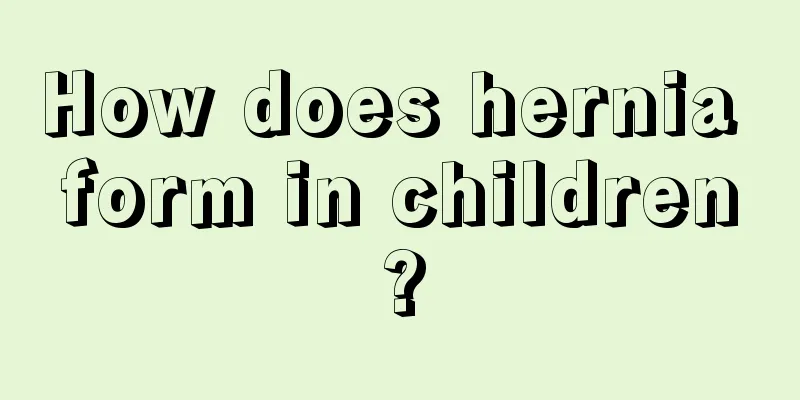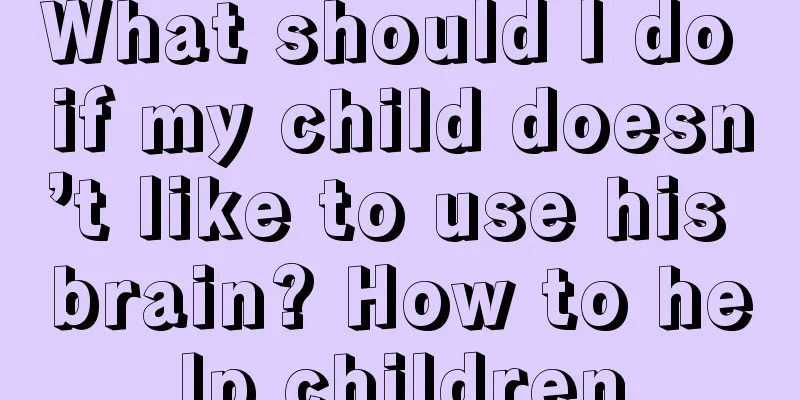Three-year-old child has white spots on his face

|
A three-year-old child has white spots on his face, which makes parents very worried. There are many reasons for this symptom, one of which may be worm spots, which is a skin disease. If it does not develop and expand, generally speaking, don’t worry too much. But if it develops, you should be alert to whether it is vitiligo. In addition, pityriasis alba and tinea versicolor are relatively common skin phenomena. Three-year-old child has white spots on his face 1. Insect spots The white spots on a three-year-old child's face are worm spots. Press down the child's lower eyelid with your hand and let the child look up. If there are black or blue spots on the whites of the child's eyes, there may be worms in the child's stomach and worm spots appear on the face. suggestion: 1. You can test your baby's stool routine. If there are worm eggs, you should deworm in time; if there are no worm eggs, you should increase nutrition. At the same time, you can test the trace elements. If there is a deficiency, you should supplement it in time, and eat more vegetables and fruits to supplement vitamins. 2. If the symptoms do not improve or the white spots expand, you should take a patient to a dermatologist for examination to see if you have other skin diseases. 2. Simple pityriasis The skin lesions are round or oval pink macules of varying sizes with unclear edges. After 1 to 2 weeks, the redness fades, leaving light spots. The surface is dry with a few small grayish-white scales. The diameter is 1 cm to several centimeters, with clear boundaries and slightly raised edges. There are usually 4 to 6 or more of them, symmetrically distributed on the face, and some are prone to occur on the neck, upper arms, back and even trunk. Recommendation: Most children with this disease have no subjective symptoms, and a few have mild itching. The course of the disease is chronic and may not heal for several days or years, and then gradually disappear without leaving any trace. 3. Tinea versicolor A three-year-old child has white spots on his face, which may be tinea versicolor, also known as pityriasis versicolor, which is a fungal infection caused by sweating in the summer. suggestion: Use medicine or mash single garlic (or small garlic), wrap it with gauze, dip it in aged vinegar (preferably Zhenjiang aged vinegar) and rub the affected area (rub until local heat and slight tingling occur), three times a day, use for 5-7 days, it is very effective. 4. Vitiligo If a three-year-old child has white spots on his face, it may be vitiligo, a skin depigmentation disease. The average age of onset of vitiligo in children is 5-7 years old, and the incidence rate in girls is higher than that in boys. If the white spots on the child's face are very white, and the boundary between them and normal skin is very clear, the surface is smooth without scales, and there is no redness, swelling, itching or other discomfort in the white spots, then the child may be suffering from vitiligo. suggestion: When a three-year-old child has white spots on his face, parents must pay attention and should take the baby to a vitiligo specialist hospital for relevant examinations in time to find out whether the baby has vitiligo. Vitiligo in children often occurs on the face, neck, hands and feet, and can occur in any part of the body. |
<<: Baby has fever and turns pale
>>: Why are babies' hands whiter than their faces?
Recommend
Can a two-year-old baby eat cereal? Pay attention to nutritional balance
When a child reaches the age of two, he or she al...
How to treat tongue ulcer in children
Tongue ulcers are a common symptom of disease in ...
How to deal with high jaundice in babies?
What to do if the baby has high jaundice and how ...
What causes headache in children?
Children have weak physical resistance and are pr...
What to check for a child's nose bleeding
Children are naughty and often bump into things w...
What should I do if my child has a stuffy nose? These methods are very useful
If a child has a stuffy nose, it may be that he h...
What to do if baby has lice in hair
The baby's body is relatively weak and is mor...
Precocious puberty in young girls
Generally speaking, girls will not show symptoms ...
Did your child break his finger on a toothpick?
Toothpicks are indispensable in our daily life. T...
My child's glasses are swollen, what's wrong?
When a child's eyes are swollen, you should u...
What should I do if my child has rectal polyps?
How should children be cared for and treated when...
What to do if your baby chokes on milk
Babies are prone to choking on milk when they are...
What's a good way to deal with a fussy kid?
Children's sleep disturbance is a manifestati...
How to do family rehabilitation training for children with cerebral palsy
Cerebral palsy in children is a relatively common...
What to do if your child has nasal mucus
One of the functions of the human nasal cavity is...









